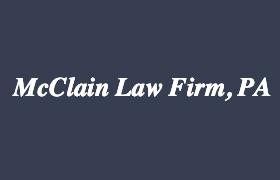Merritt Island Estate Lawyer, Florida
Sponsored Law Firm
-
 x
x

Click For More Info:
-
McClain Law Firm, PA
P.O. Box 536387 Orlando, FL 32853» view mapEstate Law A Law Firm That Cares
Let McClain Law Firm, PA handle all your Estate Planning needs today!
800-908-6270
Michele A. Biecker
✓ VERIFIEDDivorce & Family Law, Estate, Bankruptcy & Debt
At Biecker Law LLC, Michele Biecker believes that when you need legal services, you need an attorney that can provide you with the best advice. That�... (more)
Richard E Stadler
Government Agencies, Wills & Probate, Franchising, Banking & Finance
Status: In Good Standing
Daniel William Blougouras
Estate, Wills & Probate, Elder Law, Business Successions
Status: In Good Standing Licensed: 22 Years
Deborah M Smith
Divorce & Family Law, Bankruptcy, Wills, Custody & Visitation, Alimony & Spousal Support
Status: In Good Standing Licensed: 36 Years
Jason Hedman
Commercial Real Estate, Trusts, Estate Planning, Civil Rights
Status: In Good Standing Licensed: 39 Years
Bradly Roger Bettin
Corporate, Construction, Contract, Estate Planning
Status: In Good Standing Licensed: 41 Years
 Timmy McClain Orlando, FL
Timmy McClain Orlando, FL AboutMcClain Law Firm, PA
AboutMcClain Law Firm, PA

